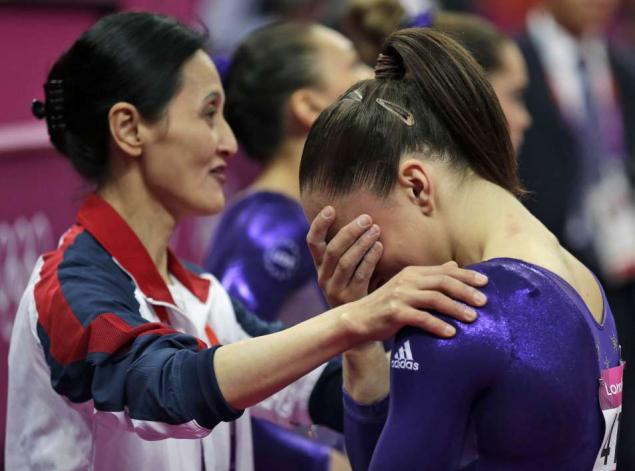Nobody likes to lose, whether it be in work, sports or love. Just ask any of those Olympians who lost out on receiving a medal. The aim was to win and an unthinkable number of hours were involved in the training.
Now you and I are probably not Olympians but the feelings are no different, it hurts to lose!
Defeat doesn’t have to be agony – you can make it work for you and turn it into a learning experience.
Have you ever thought that losing can actually be good for you? Losing shakes you by the shoulders and says “Wake-up! Hey there! There are a few things you need to reconsider.” Losing demands that you look at your faults and misguided expectations.
It is a fool who says “if at first you don’t succeed, try and try again!” Before just foolishly redoing what you actually did wrong, you need to reevaluate why you aren’t succeeding and make another plan! During the London Olympics 2012 I couldn’t help but notice the athletes coaches videoing the every move of the athlete. No doubt this would be examined in detail to see where improvements could be made. A more helpful saying would be “if at first you don’t succeed, look at your strategy, reinvent it and try again!”
“True success is always the last of a string of failed attempts to get it right” – Walter Anderson.
At some point of your life you might have got the idea that you’re supposed to win all the time. This attitude is encouraged by parents, teachers, as well as society. Men in particular are expected to be successful and excel in their field. Otherwise they’re regarded as a loser. This is “all or nothing” thinking, sometimes known as “black and white” thinking, one of several distorted thinking patterns.
The most successful people focus on the ‘process’ of what they are doing rather than the end results. Scientists have shown that when athletes start thinking about details of their technique instead of just letting muscle memory run the show, they tend to mess us (Time Magazine July 30-August 6, 2012: 33). Focusing on the end results is common to perfectionists and it is often perfectionists that procrastinate and find it difficult to get going. A person who enjoys the ‘process’, the parts in between starting and finishing, is often far more successful in their endeavors.
There is nothing wrong with wanting to succeed – a person rarely if ever starts a new venture with the explicit intention of losing! The problem comes about when the outcome is not what you want and you judge your worth as a person on that. Because you lost, you conclude that you are a loser. Faulty logic here! This is called emotional reasoning in the list of faulty thinking patterns.
The question isn’t whether you win or lose – it’s whether you’re willing to accept some losses now so you can get better in the future.
Losing like a winner
A loss can make you more receptive to new information. If you seldom lose you might become overconfident and become too swollen-headed to listen to anything from anyone else!
Okay, so you’ve lost … Tantrums and swearing really aren’t going to help, but if you must, do this privately where no one else is going to hear you or be put off by your behavior! Have a ‘pity party’ for say, 10 minutes and then let it go and move on!
Move on and learn from the situation. We cannot be in control of the outcomes but we can be in control of the ‘process’. If you went out and achieved your personal best, does it really matter if you lost. You’re still a winner!
- The person who got the job you wanted might have been better qualified than you. That doesn’t mean you’re a loser.
- The girl or guy who turned you down for a date may already have had a steady. That doesn’t mean you’re a loser.
Explore the facts of the situation rather than making negative personal conclusions.
The question of WHY
You can rationally ask yourself why you lost. Learn the lessons you need to learn and then move on. But asking yourself the question ‘why’ over and over again isn’t going to help. You might even fall into the faulty thinking pattern of ‘catastrophizing’ what happened, or magnifying the loss out of all proportion.
Try to focus on enjoying the process, you won’t win at everything you do, but you can still have an enjoyable journey and learn from your experiences.
“Life is a journey, not a destination.” Ralph Waldo Emerson
ENJOY THE RIDE!!
Related post: Winning starts in the head
